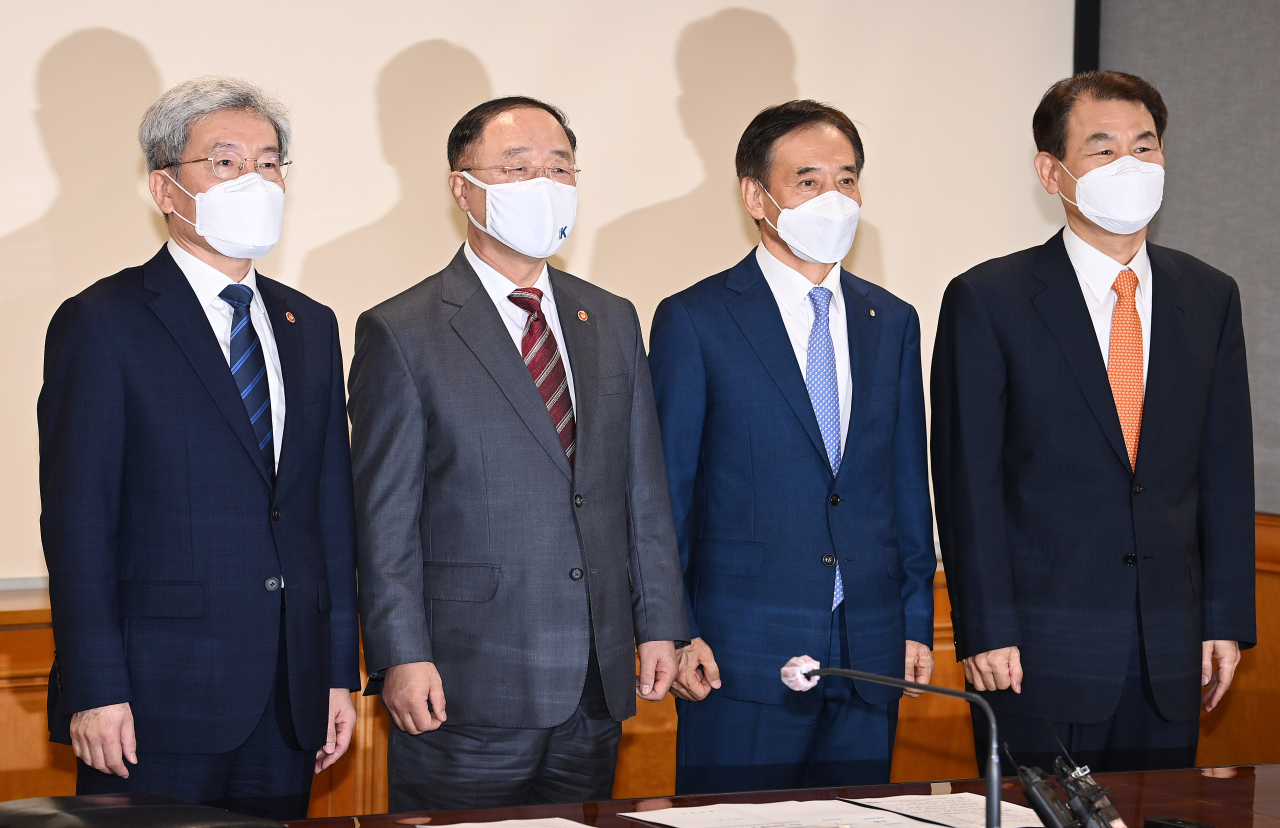Policymakers to meet over economic risk factors, market volatility
By YonhapPublished : Feb. 10, 2022 - 09:28

Finance Minister Hong Nam-ki said Thursday he will meet with the central bank chief and the top financial regulator this week to discuss policy coordination, volatility in the financial market and economic risk factors.
Hong plans to hold a meeting Friday with Bank of Korea (BOK) Gov. Lee Ju-yeol; Koh Seung-beom, chairman of the Financial Services Commission; and Jeong Eun-bo, chief of the Financial Supervisory Service.
The finance minister said the main agenda will include how to coordinate fiscal, monetary and financial policies, ease financial imbalances, and stabilize the bond and foreign exchange markets.
"We will also discuss contingency plans to tackle (the fallout) from the potential deterioration in tensions between Russia and Ukraine," Hong said.
South Korea's financial market has seen volatility increase amid the prospects that the Federal Reserve will accelerate monetary tightening.
The Korean currency has sharply fallen against the US dollar in recent months, with the won dropping to a 19-month low of 1,206.40 per the greenback on Feb. 3.
Yields of three-year government bonds rose 6.6 basis points to 2.303 percent Tuesday, the highest in nearly four years.
Higher oil prices and the won's weakness have boosted the country's import bills.
Oil prices have spiked on tight supplies and escalating geopolitical tensions between Russia and Ukraine.
Dubai crude, South Korea's benchmark, soared to $90.91 per barrel Monday, up from $77.12 at the end of last year. South Korea depends mainly on imports for its energy needs.
Hong said upward pressure on inflation is piling up as the demand-pull pressure has risen on top of surging energy costs and global supply chain disruptions.
"The government will mobilize all policy means to stabilize consumer prices in February," he added.
In January, consumer prices rose 3.6 percent from a year ago, compared with a 3.7 percent on-year gain in December. Consumer inflation grew more than 3 percent for the fourth straight month.




![[Herald Interview] 'Amid aging population, Korea to invite more young professionals from overseas'](http://res.heraldm.com/phpwas/restmb_idxmake.php?idx=644&simg=/content/image/2024/04/24/20240424050844_0.jpg&u=20240424200058)












![[KH Explains] Korean shipbuilding stocks rally: Real growth or bubble?](http://res.heraldm.com/phpwas/restmb_idxmake.php?idx=652&simg=/content/image/2024/04/25/20240425050656_0.jpg&u=)

